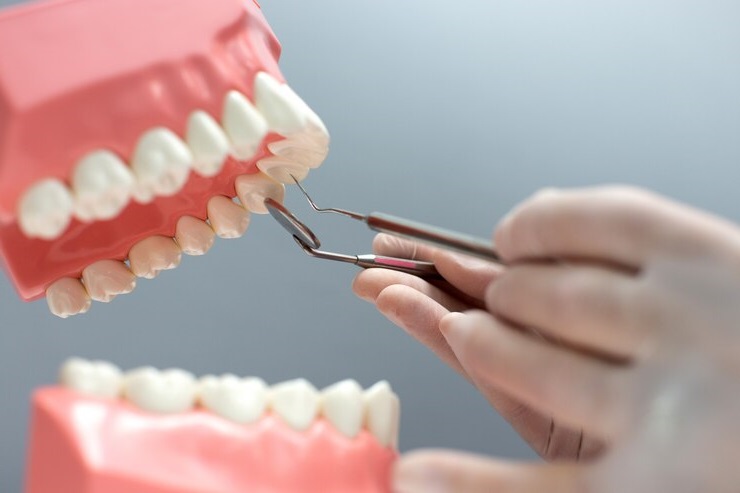
When it comes to maintaining good health, understanding which probiotic is recommended by most doctors can make a significant difference. Probiotics are beneficial bacteria that support various aspects of health, particularly gut health. Including probiotics in your daily routine can enhance digestion, boost immunity, and improve overall well-being. But with so many options available, knowing which one is the best choice, especially the one recommended by most doctors, can be challenging.
The popularity of probiotics has soared in recent years, and for good reason. These live microorganisms offer numerous health benefits, but finding the right one can be overwhelming. By exploring which probiotic is recommended by most doctors, you can make an informed decision that best supports your health needs.
Understanding Probiotics
Before diving into which probiotic is recommended by most doctors, it’s essential to understand what probiotics are and how they work. Probiotics are live microorganisms, typically bacteria or yeast, that provide health benefits when consumed in adequate amounts. They are commonly found in fermented foods and dietary supplements.
How Probiotics Work
Probiotics work by restoring and maintaining the balance of beneficial bacteria in the gut. This balance is crucial for proper digestion, nutrient absorption, and immune function. When the gut microbiome is imbalanced, it can lead to various health issues, including digestive problems, infections, and even mental health disorders.
Benefits of Probiotics
The benefits of probiotics extend beyond gut health. They can help prevent and treat diarrhea, improve symptoms of irritable bowel syndrome (IBS), enhance immune function, and even support mental health. Understanding which probiotic is recommended by most doctors can help you take advantage of these benefits.
Most Recommended Probiotics by Doctors
Doctors often recommend specific strains of probiotics based on their proven health benefits and safety profiles. Let’s explore some of the top probiotics that are recommended by most doctors and why they are preferred.
Lactobacillus rhamnosus GG (LGG)
Lactobacillus rhamnosus GG (LGG) is one of the most well-researched probiotic strains and is frequently recommended by most doctors. It has been shown to be effective in preventing and treating diarrhea, especially antibiotic-associated diarrhea and traveler’s diarrhea. LGG also supports immune function and helps alleviate symptoms of IBS.
Bifidobacterium lactis
Bifidobacterium lactis is another probiotic strain that is commonly recommended by most doctors. It is known for its ability to improve digestion and boost the immune system. This strain is often included in infant formulas to support gut health in babies and is also beneficial for adults experiencing digestive issues.
Saccharomyces boulardii
Saccharomyces boulardii is a yeast-based probiotic that is highly recommended by most doctors for its effectiveness in treating gastrointestinal disorders. It is particularly beneficial for preventing and treating diarrhea caused by antibiotics and infections. Additionally, it supports the gut’s barrier function and reduces inflammation.
Lactobacillus acidophilus
Lactobacillus acidophilus is a well-known probiotic strain that is widely recommended by most doctors. It is effective in promoting healthy digestion, preventing and treating diarrhea, and supporting vaginal health in women. This strain is commonly found in yogurt and other fermented dairy products.
Bifidobacterium longum
Bifidobacterium longum is another probiotic strain frequently recommended by most doctors. It helps maintain a healthy balance of gut bacteria, supports immune function, and improves symptoms of IBS. This strain is also known for its anti-inflammatory properties and ability to enhance the gut barrier.
Factors to Consider When Choosing a Probiotic
When selecting a probiotic that is recommended by most doctors, there are several factors to consider to ensure you choose the right one for your needs. These factors include the specific health benefits, the probiotic strain, and the quality of the product.
Specific Health Benefits
Different probiotic strains offer various health benefits. When choosing a probiotic, consider the specific health issues you want to address. For example, if you are looking to improve digestion, Lactobacillus acidophilus or Bifidobacterium lactis might be ideal. For preventing antibiotic-associated diarrhea, Lactobacillus rhamnosus GG (LGG) or Saccharomyces boulardii would be a better choice.
Probiotic Strain
Not all probiotics are created equal. The effectiveness of a probiotic depends on the specific strain. Make sure to choose a product that contains the strain that is recommended by most doctors for your particular health concern. Research the strain and check for clinical studies that support its efficacy.
Quality of the Product
The quality of the probiotic product is crucial for its effectiveness. Look for products that contain live and active cultures, have been tested for potency and purity, and are free from harmful additives. Reading reviews and checking for third-party certifications can also help you choose a high-quality probiotic.
How to Incorporate Probiotics into Your Routine
Knowing which probiotic is recommended by most doctors is just the first step. Incorporating probiotics into your daily routine can help you maximize their health benefits.
Dietary Sources of Probiotics
In addition to supplements, you can get probiotics from various foods. Incorporating these foods into your diet can help you maintain a healthy balance of gut bacteria.
- Yogurt: Yogurt is a popular source of probiotics, particularly Lactobacillus acidophilus and Bifidobacterium strains. Look for yogurt with live and active cultures.
- Kefir: Kefir is a fermented milk drink that contains a diverse array of probiotic bacteria and yeasts.
- Sauerkraut: Sauerkraut is fermented cabbage that is rich in Lactobacillus bacteria.
- Kimchi: Kimchi is a traditional Korean dish made from fermented vegetables and is a great source of probiotics.
- Miso: Miso is a Japanese seasoning made from fermented soybeans and contains beneficial bacteria.
- Tempeh: Tempeh is a fermented soybean product that is high in probiotics.
Probiotic Supplements
Probiotic supplements are a convenient way to ensure you get an adequate amount of beneficial bacteria. When choosing a supplement, look for one that contains the specific strain recommended by most doctors for your health needs.
Establishing a Routine
To get the most benefit from probiotics, it’s important to incorporate them into your daily routine consistently. Whether through dietary sources or supplements, make sure you are getting a regular intake of probiotics.
Combining with a Healthy Lifestyle
A healthy lifestyle can enhance the effectiveness of probiotics. Eating a balanced diet, staying hydrated, exercising regularly, and managing stress can all support a healthy gut microbiome.
Addressing Common Concerns
While probiotics offer numerous health benefits, you might have some concerns or questions about their use. Here, we address common issues to help you make informed decisions.
Safety and Side Effects
Probiotics are generally safe for most people. However, some individuals may experience mild digestive upset when first introducing probiotics into their diet. These symptoms are usually temporary and disappear as your body adjusts to the probiotics.
Allergies and Sensitivities
If you have allergies or sensitivities to certain foods, check the labels of probiotic products carefully. Some may contain allergens like dairy or soy. Choosing the right product is crucial to avoid any adverse reactions.
Consulting with a Healthcare Professional
If you have specific health concerns or are considering probiotic supplements, consulting with a healthcare professional can provide personalized advice. They can help you determine the best way to include probiotics in your diet.
Scientific Evidence Supporting Probiotics
The question remains: which probiotic is recommended by most doctors? Numerous studies have been conducted to explore the effectiveness of probiotics in promoting health. These studies provide valuable insights into how probiotics can help maintain a healthy gut microbiome and prevent common health issues.
Clinical Studies and Findings
Several clinical studies have demonstrated the benefits of probiotics for various health conditions. For example, research has shown that Lactobacillus rhamnosus GG (LGG) is effective in preventing and treating diarrhea. Bifidobacterium lactis has been shown to improve digestion and boost the immune system. The evidence strongly supports the use of these probiotics.
Real-world Applications
Beyond clinical trials, many people have reported positive results from using probiotics as part of their health routine. Testimonials and anecdotal evidence often highlight improvements in digestion, immune function, and overall well-being.
Potential for Future Research
While existing research is promising, there is still much to learn about the full potential of probiotics. Ongoing studies aim to uncover new strains and applications for probiotics in promoting health. Future research may reveal even more benefits.
Practical Tips for Using Probiotics
Incorporating probiotics into your routine doesn’t have to be complicated. Here are some practical tips to help you get started and ensure you’re using them effectively.
Choosing the Right Product
When selecting a probiotic product, look for one that contains strains specifically beneficial for your health needs. Strains like Lactobacillus rhamnosus GG (LGG), Bifidobacterium lactis, and Saccharomyces boulardii are particularly effective.
Establishing a Routine
Consistency is essential for probiotics to work effectively. Make them a regular part of your daily routine, whether it’s through a morning supplement or incorporating probiotic-rich foods into your meals.
Combining with a Healthy Lifestyle
Probiotics should complement, not replace, a healthy lifestyle. Continue eating a balanced diet, staying hydrated, exercising regularly, and managing stress to support a healthy gut microbiome.
Monitoring Your Progress
Keep track of your progress as you use probiotics. Note any changes in digestion, immune function, and overall well-being. This can help you determine if the probiotics are working effectively and if any adjustments are needed.
Conclusion
So, which probiotic is recommended by most doctors? The answer often includes strains like Lactobacillus rhamnosus GG (LGG), Bifidobacterium lactis, Saccharomyces boulardii, Lactobacillus acidophilus, and Bifidobacterium longum. These probiotics have been extensively studied and are known for their effectiveness in promoting various aspects of health. By incorporating these probiotics into your daily routine, along with maintaining a healthy lifestyle, you can significantly improve your gut health and overall well-being. Remember, a healthy gut is essential for overall health, making probiotics a valuable tool in your health regimen.





